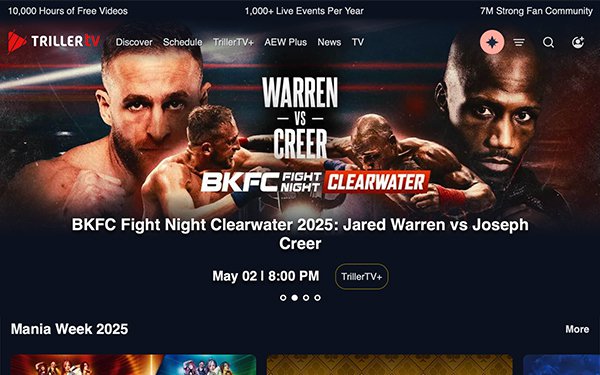
Siding with Flipps Media's TrillerTV, a federal appellate
court has refused to reinstate claims that the streaming company violated a video privacy law by allegedly sharing information about a user's video viewing history with Meta Platforms, via its pixel
tracking code.
In a ruling issued Thursday, a three-judge panel of the 2nd Circuit Court of Appeals held
that the data shared with Meta, including the user's Facebook ID -- a series of numbers tied to the user's Facebook account -- was not personally identifiable because it wouldn't allow an
“ordinary person” to identify someone.
The ruling came in a class-action complaint brought in 2022 by Detrina Solomon. She alleged that she subscribed to TrillerVerzPass, which
offered streaming video, and that the platform shared information about the videos she viewed -- along with her Facebook ID -- to Meta Platforms.
advertisement
advertisement
She claimed the streamer violated the Video
Privacy Protection Act -- a 1988 law that prohibits video providers from sharing consumers' identifiable video-viewing information without their consent.
Numerous similar lawsuits against
sites that offer streaming video are pending throughout the country.
U.S. District Court Judge Joan Azrack in Central Islip, New York, dismissed the complaint in 2023 for several reasons.
Among others, Azrack ruled that even if Solomon proved the allegations in the complaint, they wouldn't show that her Facebook ID was “personally identifiable.”
Solomon then
appealed to the 2nd Circuit, arguing that TrillerTV (also referred to in the court papers by its former name, FITE) disclosed Solomon's identity to Meta Platforms' Facebook by transmitting her
Facebook ID to the company.
“It is hard to imagine a more direct means for FITE to personally identify Solomon to Facebook than to provide Facebook with the unique ID number that
Facebook assigned to her precisely to identify her. The court should adopt a rule that accords with that reality,” she argued in a brief filed in December.
TrillerTV countered that the
complaint didn't spell out how an “ordinary person” could access or use Solomon's Facebook ID, which was associated with Meta's cookie on her browser.
The streaming service also
argued that the complaint didn't say whether she used her real name when creating her Facebook account.
The 2nd Circuit sided with TrillerTV and upheld the dismissal.
“We
conclude that 'personally identifiable information' encompasses information that would allow an ordinary person to identify a consumers video-watching habits, but not information that only a
sophisticated technology company could use to do so,” Circuit Court Judge Denny Chin wrote in an opinion joined by Judges William Nardini and Reena Raggi.
Several other appellate courts
dealing with video-privacy lawsuits have ruled that pseudonymous data such as a serial number isn't in itself personally identifiable -- though in those cases the pseudonymous data wasn't disclosed to
the same company that created the identifier. For instance, the 9th Circuit Court of Appeals ruled that a Roku serial number that was allegedly transmitted to Adobe was not personally identifiable
information because an “ordinary person” wouldn't be able to determine someone's identity based on a Roku serial number.
But the 1st Circuit Court of Appeals said in a 2016 ruling that pseudonymous device identifiers, combined with location data, were
personally identifiable information.
Alan Butler, executive director and president of the advocacy group Electronic Privacy Information Center, criticized the court's decision in the TrillerTV
matter.
“This 'ordinary person' standard comes from nowhere,” he tells MediaPost. “It's not in the statute, and it's not the right way to think about how to define
personally identifiable information.”
Butler adds that the Facebook ID is more than simply “identifiable” by Facebook, because that ID actually identifies a particular
account.
“Why are they asking an abstract question about whether a person on the street could identify a user, when the data wasn't going to a person on the street?” he says.
Butler also notes that the ruling seems inconsistent with a recent decision issued by a different three-judge panel of the
same circuit. In that matter, the court revived claims that the National Basketball Association violated the Video Privacy Protection Act by allegedly embedding the Meta pixel on NBA.com. The judges
in that case said the video privacy law should be interpreted broadly.
The National Basketball Association recently petitioned the Supreme Court to review the ruling. That court hasn't
yet indicated whether it will hear the case.